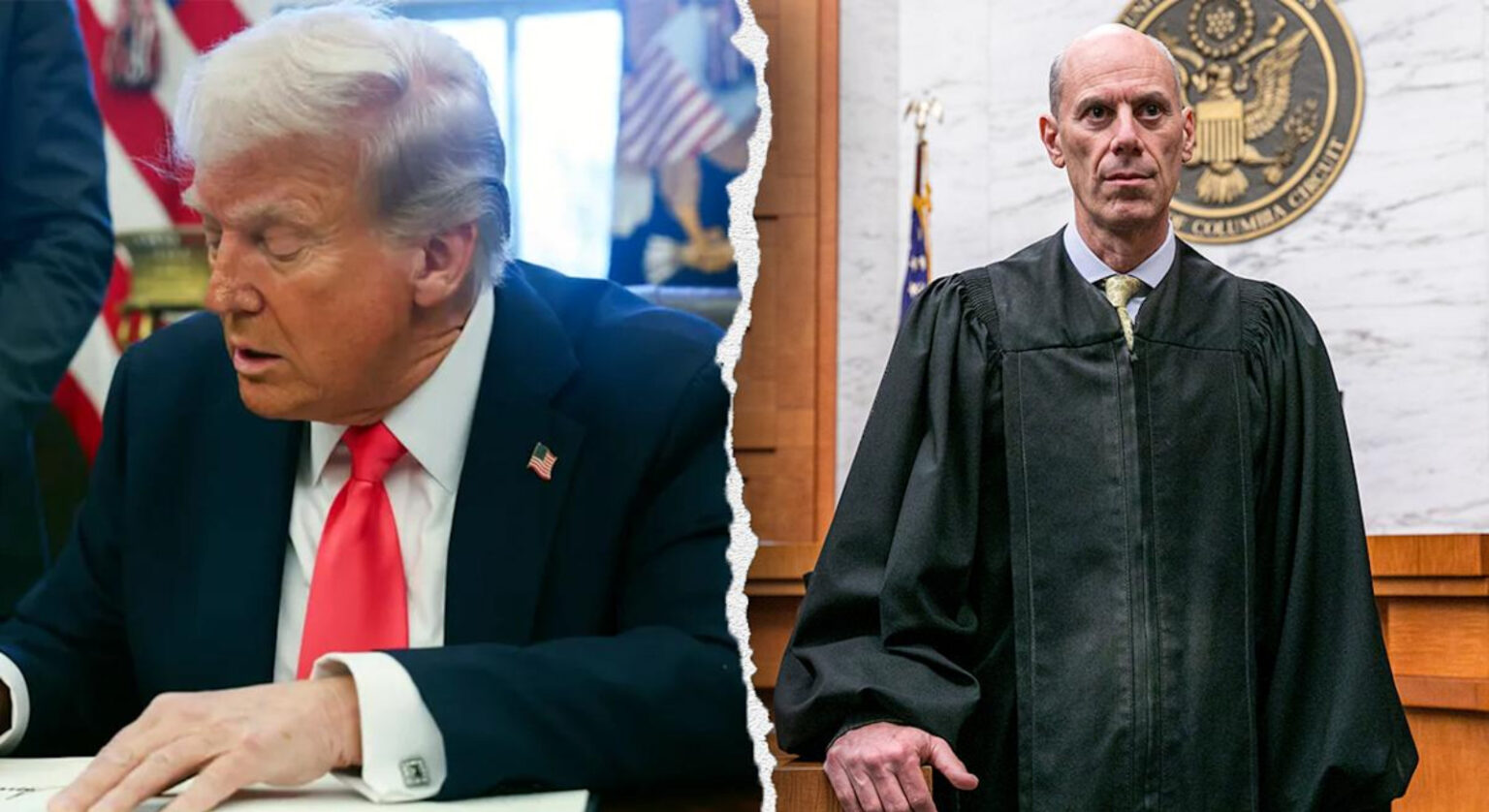A federal judge’s recent ruling to block President Donald Trump’s deportation order targeting Venezuelan gang members has ignited outrage among conservatives, with legal experts warning that it sets a dangerous precedent by expanding judicial overreach.
The controversy stems from U.S. District Judge James Boasberg’s decision last week to issue a temporary restraining order preventing Trump from invoking the Alien Enemies Act (AEA) to deport suspected gang members whom the administration has designated as terrorists.
Legal Experts Slam Judge Boasberg’s Decision
Judge Boasberg’s ruling has faced intense criticism, with some calling for his impeachment over what they describe as judicial overreach. Fox News legal analyst Greg Jarrett condemned the decision, calling it a blatant defiance of Supreme Court precedent.
“What’s so troubling about Boasberg’s restraining order is that he is defying the Supreme Court, which reviewed Harry Truman’s use of the Alien Enemies Act after World War II ended,” Jarrett said during a Fox News segment.
“The high court ruled that not only is the AEA constitutional, but that it is not subject to judicial review by any judge.”
Supreme Court Rulings on the Alien Enemies Act
Legal analysts argue that Supreme Court precedent makes it clear that when a president invokes the AEA, no judge or court has the authority to intervene—not even the Supreme Court itself.
Jarrett further explained, “Boasberg is duty-bound, as a lower court judge, to follow the ruling of the highest court—the Supreme Court—and yet, he is brazenly ignoring precedent.”
In a column published last week, Jarrett pointed to the 1948 Supreme Court ruling in Ludecke v. Watkins (33 U.S. 160), which upheld President Harry Truman’s use of the AEA and explicitly stated that a president’s decision under the Act “precludes judicial review.”
The Political Question Doctrine: Presidential Powers vs. Judicial Overreach
The Supreme Court’s ruling in the Ludecke case reaffirmed the political question doctrine, which states that federal courts cannot interfere in presidential decision-making when it comes to foreign affairs and national security.
“By analogy, we do not permit judges to halt drone strikes or shut down intelligence operations,” Jarrett noted.
According to legal experts, this doctrine clearly applies to Trump’s deportation order targeting Venezuelan gang members, reinforcing the argument that Boasberg’s ruling is legally flawed.
Trump Administration Defends the Use of the Alien Enemies Act
President Trump’s administration strongly defended the deportation order, arguing that the Alien Enemies Act provides the president with broad authority to remove individuals deemed a threat to national security.
Jarrett pointed out that the law has been in place for over two centuries, stating:
“More than 200 years ago, Congress passed a broad law granting the President sole authority to evict enemy aliens. The Supreme Court later upheld this statute, calling it ‘the law of the land, virtually unchanged since 1798.’”
Public Support for Deporting Criminal Aliens Remains High
Polls consistently show that a majority of Americans support strong immigration enforcement, particularly when it comes to deporting individuals associated with criminal or terrorist activity.
Jarrett emphasized this point, stating:
“President Trump is utilizing every tool the law affords him to remove enemy aliens who pose a constant threat. The American people overwhelmingly support these measures, particularly when they involve criminals and terrorist-linked groups.”
Calls for Judge Boasberg’s Removal Grow Louder
As Boasberg’s ruling continues to generate backlash, calls for his removal from the bench have intensified. Conservative legal analysts argue that his decision is not only a violation of Supreme Court precedent but also a dangerous overstep of judicial power.
“Lower court judges are duty-bound to follow Supreme Court precedent. On that basis alone, Judge Boasberg’s ruling is legally indefensible,” Jarrett concluded.
With the Trump administration expected to appeal, legal experts predict that the case could soon reach the Supreme Court, where precedent suggests that Trump’s authority under the AEA will be upheld.
Final Thoughts: A Legal Battle with High Stakes
The battle over Trump’s deportation order underscores a broader clash between executive power and judicial intervention, with potential implications for immigration policy, national security, and presidential authority moving forward.
As the legal fight intensifies, all eyes will be on the Supreme Court to determine whether Judge Boasberg’s ruling stands—or is overturned in favor of long-established legal precedent.
